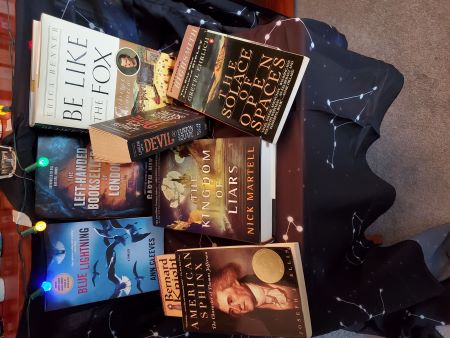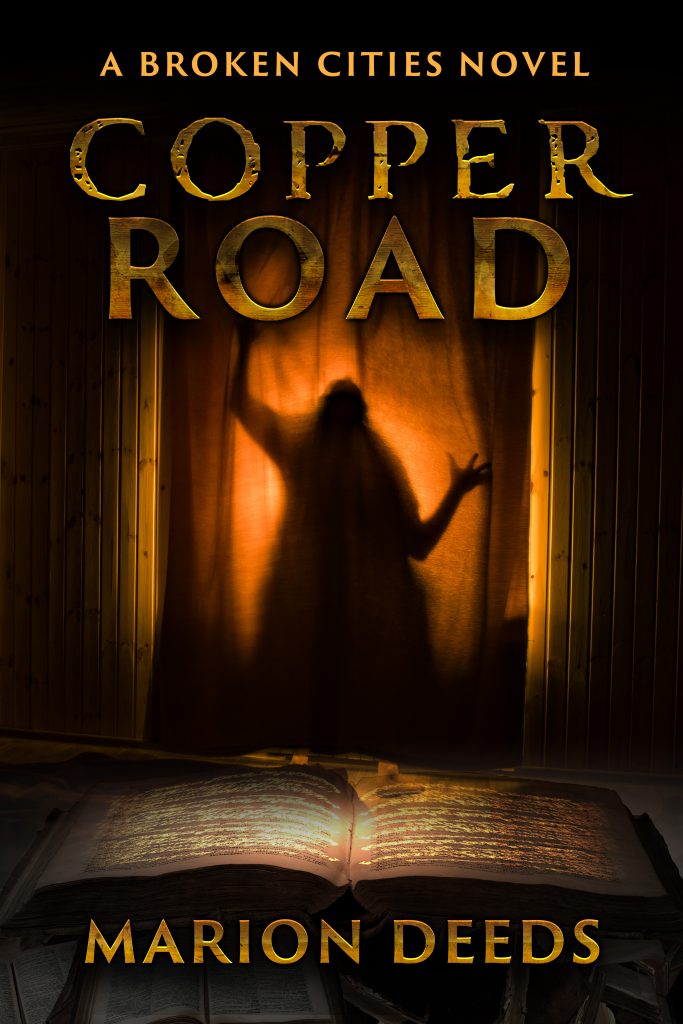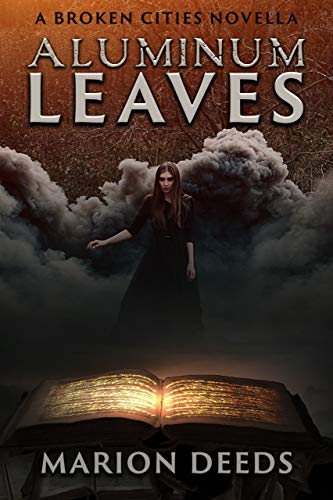Selena Montgomery
is a successful romance novelist with eight romance novels to her credit.
Romance is not my go-to genre, but since Selena Montgomery is the pseudonym of
Stacey Abrams, I had to buy one.
I wanted to buy several, but since I embarked on this endeavor shortly after
the election, when Georgia went for Biden (again, and again, and then one more
time). I was not alone in this idea and many of them were backordered. I
ordered some from Amazon and some from Copperfield’s Books, my local independent
chain bookstore chain. The first one to arrive was called Deception.
I need to provide a disclaimer here. Until I read Deception, I hadn’t
read a romance novel in thirty years—maybe forty. I had stumbled across a
couple of paranormal romances because I confused them with urban fantasy, but
the tropes for paranormal R are slightly different. While shelving Romance at
Second Chances Used Books, and I’d noticed that Nora Roberts in particular had
written several romantic series, but I assumed this was something unique to
her.
It isn’t. To my disappointment, Deception is the second book of a
trilogy, and I probably will go hunt down the first one. (To clarify, I’m not
disappointed about that part. I’m disappointed that I came into the middle of a
story.) The trilogy follows three friends who grew up in in a very unusual
foster home in a small town in Georgia. Now matured into three beautiful,
intelligent, highly successful women, they find their foster mom—and by
extension, themselves—in the crosshairs of a highly successful crime ring that
calls itself Stark.
Findley Borders, who goes by Fin, was the rebel of the three who fled town
under a cloud when she was a few weeks shy of eighteen. She is now a rich and
successful professional gambler. Poker is her game. Fin’s multiracial beauty is
an investment, a distraction for amateur players at the table. Fin is the risk-taker,
the one of the three who, while dancing on the thin line of legal/illegal, has
slipped more than once.
Kell is a successful criminal lawyer, who was obviously the MC of Book One,
since she defended the foster mom, Mrs. Faraday, against a bogus murder charge,
and she’s landed her man, local sheriff Luke. Julia is an emergency room
doctor, cool under pressure.
Deception is Fin’s love story, and her antagonist/lover is Caleb
Matthews, an FBI agent undercover as an assistant district attorney in the small
town’s DA office. You might question why a small town has an office for the DA,
unless it’s the county seat (which it might, in fact, be), and this is never
explained, and it doesn’t matter. The secrecy of Caleb’s assignment with even
the DA left in the dark doesn’t matter either, and the nature of Eliza
Faraday’s group home, foster home, or whatever-it-is doesn’t matter either.
Like thrillers, romance novels don’t depend on authenticity of the real world
to work. In this book, Montgomery pays attention to her crime-ring part and
keeps the action moving, but she knows her genre and never sacrifices the
sizzling arousal or dreamy yearning between Caleb and Fin for something like a
stake-out or a record-check or any boring thing that would happen in the real world.
I also read thrillers, and while I found Deception implausible in many
ways, it was as plausible as about 95% of the thrillers I’ve read.
Fin and Caleb engage in a lot of what the nuns at my high school would have
called “heavy petting,” and Montgomery faces the classic romance writer
challenge, with certain words denied to the genre, how do you describe steamy,
salacious physical contact and growing sexual tension without getting
repetitive? In fact, it did get repetitive, but Montgomery managed to change it
up enough that it wasn’t unconscious self-parody.
Halfway through Deception, we learn the identity of the secretive crime
boss who runs Stark. I was startled. If think if I’d read the first book, I
would be outright shocked. I have no way of knowing how well Montgomery nailed
the reveal, but it certainly worked for me. That reveal totally worked for me.
I was glad to see some of my assumptions about romance novels corrected. The
idea of a group of women friends, a community, at the heart of the story was
new to me, and I like it. The idea that in several cases, Fin is the physical
aggressor was good to see; she is no helpless shrinking maiden; she owns her
sexuality. By extension, Caleb is not a stalker. Three friends who are
spiritual sisters creates the space for the inevitable quizzing and teasing
about how late Fin was out with Caleb and so on that creates comic relief and
just general relief from all the tension both sexual and criminal.
The story, given a focus on a sexual relationship, was engaging and I liked the
three women and Mrs. F, their foster mother, very much. Montgomery’s point of
view shifts were a distraction for me, and the word choices sometimes made me
roll my eyes. I can’t judge if those are idiosyncratic to the writer or part of
the genre.
Romance is still not my go-to, but I enjoyed Deception and I learned a
lot. Abrams, as Abrams, is publishing a political thriller tentatively
scheduled for May, 2021. I will watch for it. And, I’ll track down book one in
my spare time.











